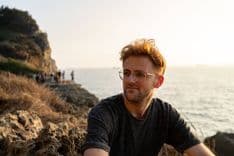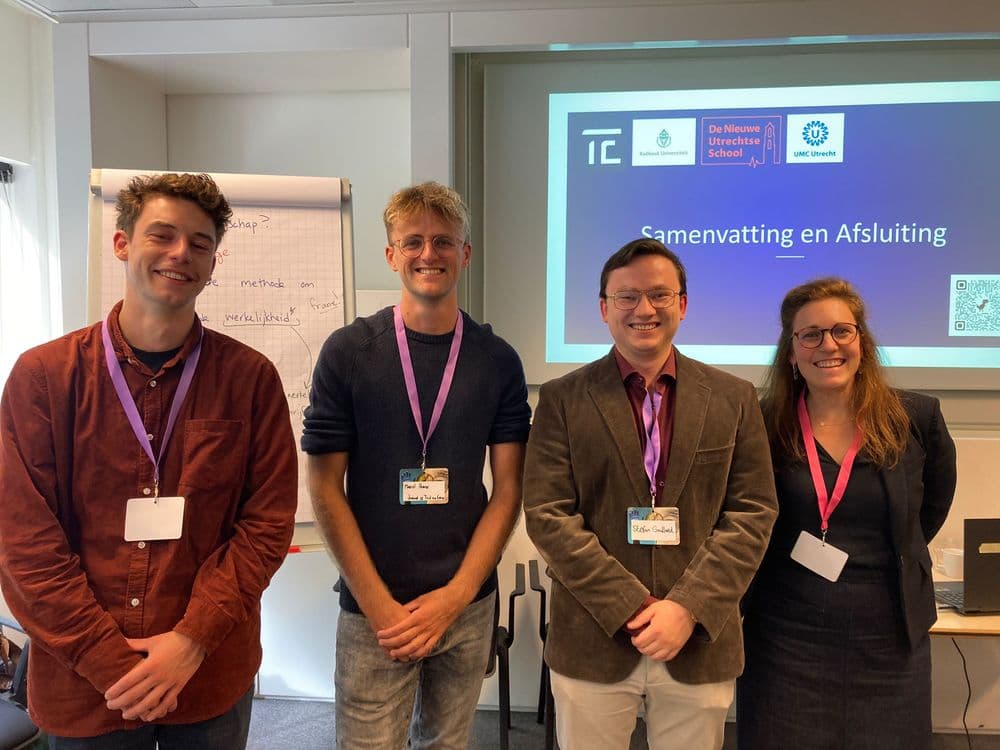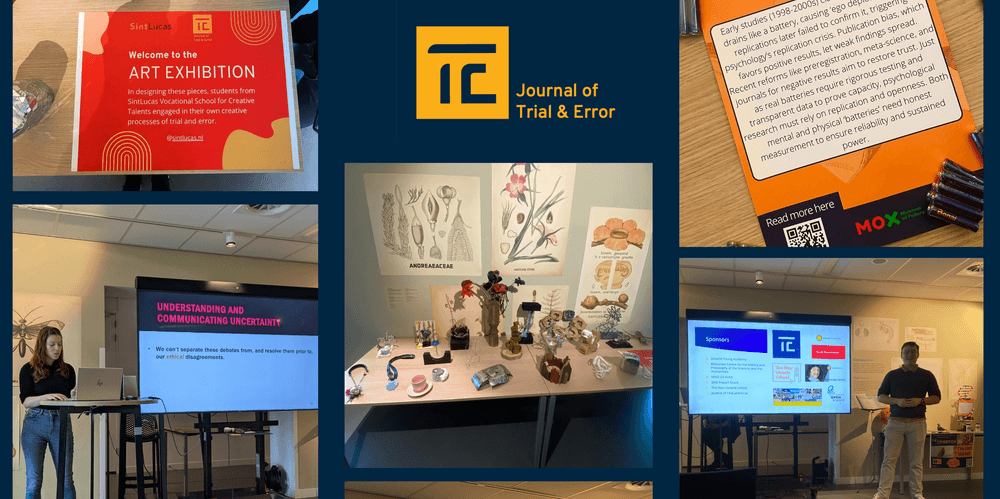~ 3 min read
National Science Communication Day: JOTE Presents on Values in Science
Yesterday on October 9th, Stefan Gaillard (JOTE, De Nieuwe Utrechtse School), Megan Milota (UMCU, DNUS), Robert Dasović and Marcel Hobma (JOTE) organized a workshop on values in science, for the annual Dutch conference on Science Communication.
In early 2023, one of JOTE's members pointed out the existence of the annual Dutch Science Communication event in our cosy Whatsapp-group. "Isn't this a great thing for Stefan and Marcel?", Maura suggested. After all, Stefan studies promises and hypes within science communication for his PhD, and Marcel has a degree in Journalism. Furthermore, the Blog of Trial and Error itself can be seen as an example of science communication - our message of academic disruption and reflection is not only limited to an academic public, after all.
After several months of discussing, tinkering and online calls with the organisation of the event, we finally arrived at a concrete plan during the summer holidays. We asked a contribution from Megan Milota, who is assistant professor in Narrative Medicine, and enlisted the help of Robert Dasović to guide the interactive part of our session.
Coming from the perspective of ethics, history and philosophy of science, our group was in the ideal position to make our audience approach their subject matter from a novel way. Most attendees saw science as a rational process of truth-seeking, and in contrast to this we began setting out a more complete view of science: as a socially, politically and economically embedded process that contains many different values. We illustrated this view by letting the public interact with three cases.
First, it was my turn to introduce the literature on values in science by reflecting on an article I published about sex differences in clinical trials. If I would have emphasized the values in clinical research when I wrote this article, it probably would have led to more public debate and a better understanding of clinical research as a socially embedded process (for more, read my blogpost here). Next, Megan Milota introduced her research on how the use of AI in cancer diagnosis is being assessed. By making our audience reflect on a study, they realized that although using AI might lead to higher efficiency and less workload for doctors, the assessment of AI tends to neglect additional costs and the view and experience of the patient. Lastly, Stefan asked the public to take a step back and reflect on the theme of the conference (AI) as a whole: what values are embedded in this theme, and could it be that some topics in science communication receive inappropriate amounts of attention - maybe even amounting into a hype?
After one hour of discussing our cases, we had to let the audience go and enjoy the rest of their conference. Even though one hour was way too short for the interactive session we had in mind, we felt that our audience left the room with many critical questions, and a new perspective on science. Hopefully something that can be repeated next year!

Marcel Hobma is a student in History and Philosophy of Science, and trained as an (investigative) journalist. His interests vary from the Philosophy of Biology to the incentive structure of science. He currently works on his Master's thesis on the cultural evolution of values in nutrition science.




